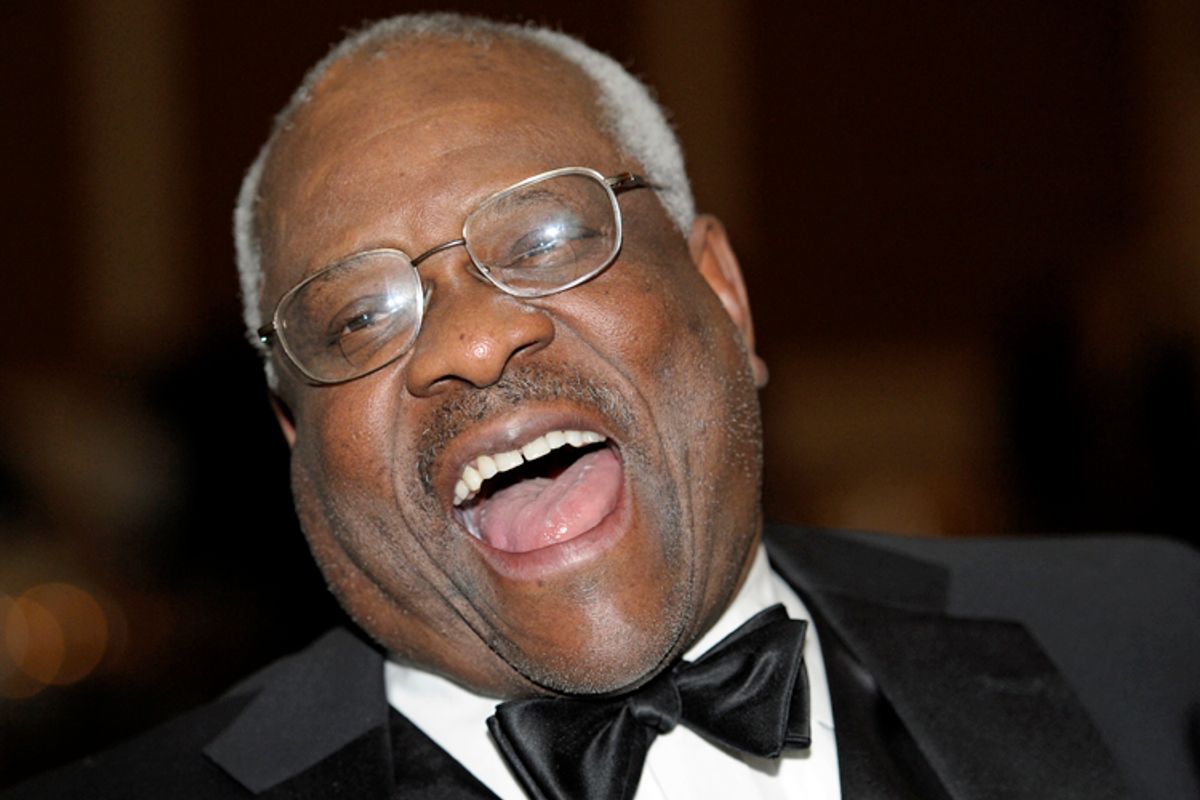Speaking before a group of college students at Palm Beach Atlantic University on Tuesday, Supreme Court Justice Clarence Thomas bemoaned how "sensitive" Americans have become over issues of race and other markers of social "difference."
"My sadness is that we are probably today more race and difference-conscious than I was in the 1960s when I went to school," Thomas said. "To my knowledge, I was the first black kid in Savannah, Georgia, to go to a white school. Rarely did the issue of race come up."
"Now, name a day it doesn’t come up," he continued. "Differences in race, differences in sex, somebody doesn’t look at you right, somebody says something. Everybody is sensitive. If I had been as sensitive as that in the 1960s, I’d still be in Savannah."
Thomas next went on to imply that racism, sexism, homophobia, and other institutionalized forms of discrimination in America were no different than run-of-the-mill antisocial behavior. In other words, being called a racial, sexist or homophobic slur was qualitatively no different from being called a jerk.
"Every person in this room has endured a slight," he said. "Every person. Somebody has said something that has hurt their feelings or did something to them — left them out. That’s a part of the deal."
That's not to say that Thomas has forgotten those who have abused him, however. But Thomas claimed his meanest critics were not whites in Jim Crow-era Georgia, but "northern liberal elites."
"The worst I have been treated was by northern liberal elites," Thomas said. "The absolute worst I have ever been treated. The worst things that have been done to me, the worst things that have been said about me — by northern liberal elites, not by the people of Savannah, Georgia."
Thomas also weighed-in on matters of faith, implying that non-believers are incapable of making a "meaningful" oath.
"I quite frankly don’t know how you do these hard jobs without some faith. I don’t know. Other people can come to you and explain it to you," he said. "I have no idea. I don’t know how an oath becomes meaningful unless you have faith. Because at the end you say, ‘So help me God.’ And a promise to God is different from a promise to anyone else."



Shares